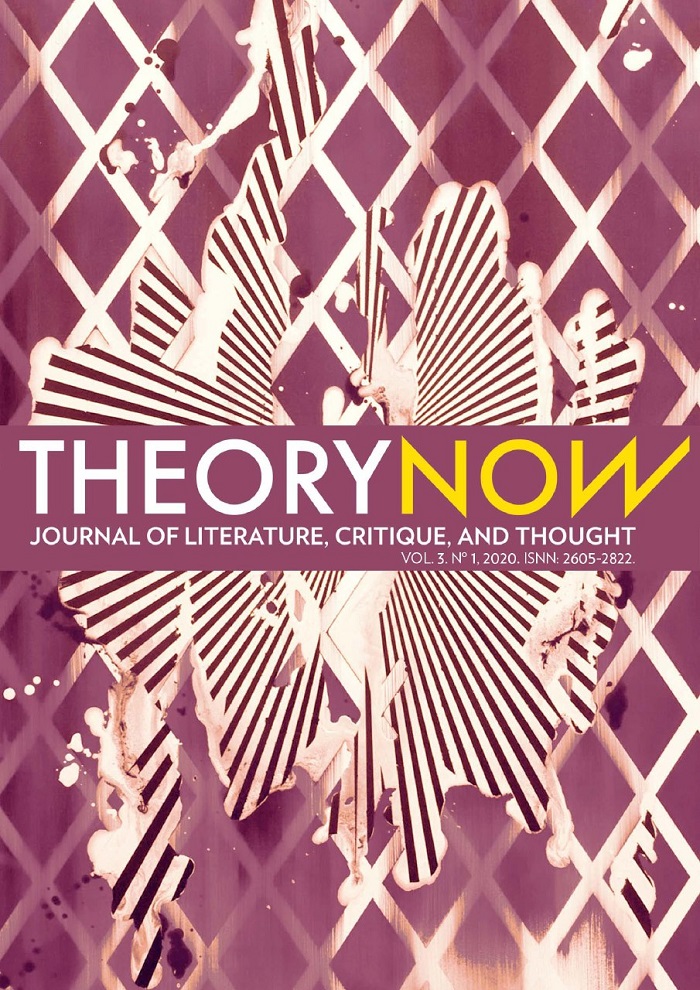For a literary genesis of the "aesthetics of existence": Pasolini, Barthes, Foucault
DOI:
https://doi.org/10.30827/tnj.v3i1.11298Keywords:
Pasolini, aesthetics of existence, language, power, artwork, lifeAbstract
The hypothesis we would like to formulate is that of an analogy between the capacity of artistic expression to escape from the grip of power and the concept of "aesthetics of existence" as elaborated by Michel Foucault in the early eighties. The basis of this analogy lies in what we would call a textualisation of life: life is seen as a language and on this basis it can be thought of - "written" and "read" - as a text. This extension of the field of language to life occupies an important place in Roland Barthes' last works, but it had been postulated before him by Pier Paolo Pasolini.
Pasolini is the first to consider that life can, indeed should, be considered from a perspective that is both political and aesthetic. In Poeta delle ceneri, Pasolini states that one can "write poetry with life". The Italian poet thus opens the way for ethical and political reflection on life as a work of art, and on the work as an example of resistance to the grip of power and as a model in the process of subjectification.
Downloads
References
Barthes, Roland. Leçon (1978), Œuvres complètes, V, Paris, Seuil, 2002.
_____. Le Neutre - Notes de cours au Collège de France (1977-1978). Paris, Seuil-Imec, 2002.
Biette, Jean-Claude. « Dix ans, près et loin de Pasolini », propos recueillis en février 1981 par Serge Daney et Alain Bergala.
Pasolini cinéaste, numéro spécial des Cahiers du cinéma, Paris, 1981.
Foucault, Michel. « Les matins gris de la tolérance » (1977a). Dits et écrits, II, Paris, Gallimard, « Quarto », 2001.
_____. « Les rapports de pouvoir passent à l’intérieur des corps » (1977b). Dits et écrits, II, Paris, Gallimard, « Quarto », 2001.
_____. « Une esthétique de l’existence » (1984a). Dits et écrits, II, Paris, Gallimard, « Quarto », 2001.
_____. « Qu’est-ce que les Lumières ? » (1984b). Dits et écrits, II, Paris, Gallimard, « Quarto », 2001.
_____. « À propos de la généalogie de l’éthique : un aperçu du travail en cours » (1984c). Dits et écrits, II, Paris, Gallimard, « Quarto », 2001.
Joubert-Laurencin, Hervé. « Pasolini-Barthes : Engagement et suspension de sens », Studi pasoliniani, n. 1, 2007.
Negri, Antonio. La fabrique de porcelaine, Paris, Stock, 2006.
Pasolini, Pier Paolo. «Empirismo eretico» (1972), in Saggi sulla letteratura e sull’arte, I, Milano, Mondadori, “I Meridiani”, 1999.
_____. Écrits corsaires (1975), Paris, Flammarion, 1976.
_____. Tutte le poésie, II, Milano, Mondadori, “I Meridiani”, 2003.
Schérer, René. « L’enfer de l’hédonisme », Multitudes, n. 18, 2004/4.
Downloads
Published
How to Cite
Issue
Section
License
Theory Now. Journal of Literature, Critique, and Thought is an immediate open-access publication which is available at no cost for readers and authors alike. Authors are not charged any kind of fee for the editorial processing of their articles. Reading, downloading, copying, distributing, printing, searching, linking or reusing all published articles for non-commercial uses is allowed on the condition of citing the author, the journal and the editing body. All intellectual material published in this journal is protected under a Creative Commons Attribution-NonCommercial 3.0 Spain license.
Dissemination of the articles in social (Facebook, Twitter, Linkedin, etc.) and scientific networks (ResearchGate, Academia.edu, etc.), public repositories at universities and other institutions, blogs, personal or institutional websites, Google Scholar, ORCID, ResearchID, ScopusID, etc. is strongly encouraged. In all cases, the intellectual property of the articles and any possible monetary profits derived from them belong exclusively to the authors.













